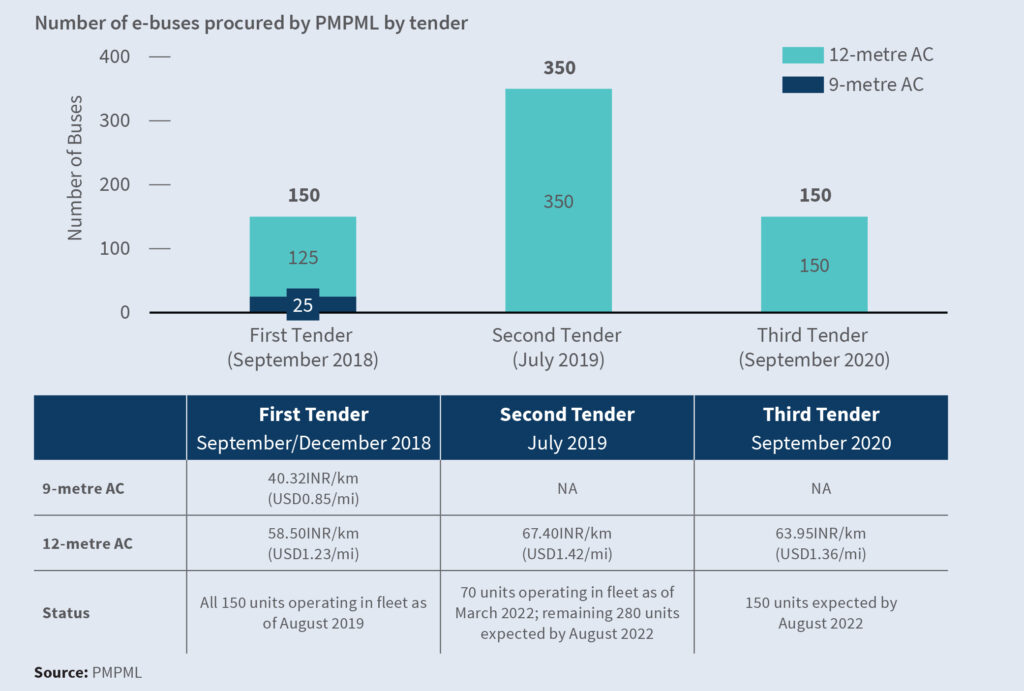
Report | 2022
Pioneering Electric Buses in Pune
A Case Study of the City’s Initial Procurement and Operations
Electrifying public transport is critical to decarbonizing urban mobility. Although the domestic electric bus (e-bus) market in India is nascent, projections indicate 4 in 10 buses sold in the country could be electric by 2030. As a leading early adopter of e-buses, the city of Pune, Maharashtra, represents a valuable case study on public transport electrification.
Pune’s public transport agency, Pune Mahanagar Parivahan Mahamandal Limited (PMPML), currently has 220 e-buses operating in its fleet of 2,169 buses — one of the largest municipal e-bus fleets operating in India. Once PMPML commissions the remaining 430 e-buses it has tendered, Pune will be on track to meet the target outlined in the state government’s electric vehicle policy — 25 percent electrification of the public transport bus fleet by 2025 — three years ahead of schedule.
Pune’s experience in e-bus procurement and operation offers valuable insights and points of reference on the forms of interagency coordination, policy support, business model design, tendering and contracting terms, and infrastructure planning to enable e-bus adoption in Indian cities. This case study provides an overview of the city’s motivation, planning process, and tenders and contracts; summarizes key enablers and challenges; quantifies economic, environmental, and public health benefits; and includes testimonials and next steps.
Through this case study, the city administration — the Pune Municipal Corporation, Pune Smart City Development Corporation, and PMPML — RMI, and RMI India aim to inspire and inform the efforts of other cities in India and the Global South to successfully incorporate e-buses in their own public transport fleets.
